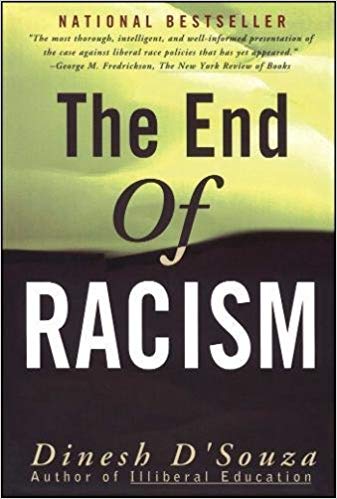Doxxing Sam Francis
Peter Bradley, American Renaissance, March 22, 2020
Doxxing, or exposing people and getting them fired from their jobs for having certain views, is one of the hazards of being on the Dissident Right. Countless activists in our movement has been doxxed, and our opponents show no signs of letting up.
Sam Francis (1947 – 2005) was an early victim — 25 years ago — and the machinations against him read like something that could have happened yesterday. A journalist and political theorist, Dr. Francis was the leading exponent of paleoconservatism. His writings on issues such as anarcho-tyranny, the managerial state, globalism, the uselessness of the Republican party and Conservatism Inc., and — most importantly — the reality of race, presaged today’s Dissident Right. Sam greatly influenced my thinking and I was fortunate to know him for the last decade of his life.
At the peak of his influence in the mid-1990s, Sam was on the editorial staff of the Washington Times as well as a nationally syndicated columnist who appeared in 80-90 newspapers. He wrote occasionally for National Review, Modern Age and other “respectable” conservative publications. His “Principalities and Powers” column was one of the top draws at Chronicles magazine. Sam had some prominence, and his profile was rising steadily, but forces within the conservative establishment were working to get him fired.

Peter Beinart and Sam Francis when the latter was still respectable. (Credit Image: C-SPAN)
As many American Renaissance readers know, they were successful. Sam was demoted and then fired by the Washington Times in September 1995.
The Rise and Fall of a Paleoconservative at the Washington Times
Sam described what happened to him in the April and May 1996 issues of Chronicles. These two columns offer a fascinating look at the internal dynamics of journalism and the conservative establishment in the 1990s. Re-reading them reminds me why Sam was so loved — and why he was so feared: one could cut to the core of an issue like Sam Francis.
Sam rarely wrote about himself and was not one to engage in self-pity, but he noted that his firing was important in a larger sense. Looking back, he was correct — as many dissidents are still finding out today:
The circumstances of my decline and fall at the Washington Times point to a story more important than what happened (or happens) to me and my column. The story has to do with larger matters: the direction of American conservatism, the boundaries of what is called the “public discourse” and who decides where those boundaries lie, and the real meaning of free expression in a nation that loves to boast of its commitment to ‘openness.’
He briefly described his career at the Washington Times, which started in 1986. In 1989 – 1990, he won the most distinguished award the paper ever received: the Distinguished Writing Awards of the American Society of Newspaper Editors for editorial writing. Sam remained loyal to the Times during a staff walkout early in his career and worked his way up from editorial writer to nationally syndicated staff columnist. He wrote:
By the middle of 1995, I believed I had established myself as a Washington columnist who wrote a unique, controversial, but popular feature. My syndication was prospering, and I found myself quoted more and more often by other writers. I received an increasing number of speaking invitations and an ever-growing body of fan mail. I sometimes worried about the future of the newspaper, which still does not make a profit after 13 years of subsidization by its owners, but I had absolutely no worries about losing my position and maintained cordial if distant relations with the local authorities.
By “local authorities” he meant his editor, Tod Lindberg, the editorial page editor and Wes Pruden, editor in chief of the newspaper. These were the men who eventually fired Sam.

Credit Image: Josh / Wikimedia
Sam was initially demoted over a June 28, 1995 column taking the Southern Baptist Convention to task for passing a resolution of “repentance” for its long-ago support of slavery:
I argued that it made no sense in Christian theology for individuals to “repent” of a sin they had not personally committed and that, in any case, there is no evidence that owning slaves is a sin in traditional (or fundamentalist) Christian theology. Indeed, I wrote, there are at least five clear passages in the letters of Paul that explicitly enjoin “servants” to obey their masters, and the Greek words for “servants” in the original text are identical to those for “slaves.” Neither Jesus nor the Apostles nor the early church condemned slavery, despite countless opportunities to do so, and there is no indication that slavery is contrary to Christian ethics or that any serious theologian before modern times ever thought it was. The point was to argue that the Baptists seemed to be motivated by a desire to accommodate themselves to modern political sensibilities rather than by serious religious or ethical precepts, and that this trend did not augur well for the future of the traditionally conservative denomination.
Sam was right. Today the Southern Baptist Convention is a shell of its former self and is as anti-white as any other institution. As Gregory Hood wrote in American Renaissance last year:
Today, the Southern Baptist Convention condemns “white supremacy,” denounces its own founding, and preaches the importance of “integrated churches” while ensuring non-whites get their own events. The head of its Ethics and Religious Liberty Commission, Russell Moore, celebrates the church’s shift from whites to “African Anglicans and Asian Calvinists and Latin American Pentacostals,” and condemns President Donald Trump in The New York Times.
Not surprisingly, the Southern Baptists’ membership has declined for years, mirroring a larger decline in church membership. Why go to church when you can get the same message from BuzzFeed?”
Sam’s column created more than the usual number of waves and even caught the eye of Jack Kemp, who denounced both the article and Sam at a reception the following evening. Despite approving the piece without edits, Mr. Lindberg informed Sam that he was being demoted from staff columnist to editorial writer and his pay would be halved (it was later raised back to 75 percent of his original salary). Mr. Pruden told him the column was a “defense of slavery.” Sam accepted the demotion but started making plans to “get the hell out of Dodge.”

A few months later, another controversy erupted with the publication of Dinesh D’Souza’s book, The End of Racism. The Washington Post ran an except from the book about Sam’s speech at the 1994 American Renaissance conference. Sam expected trouble as a consequence, and was surprised when he was not fired immediately. It turns out, Mr. Pruden and Mr. Lindberg — willing, as always, to make the most of his non-bylined work — were waiting for him to turn in his editorials, which he normally did on Thursday afternoons. Afterwards, he was called into the corner office:
With Tod brooding silently next to his desk, Wes at once launched into his firing speech. A copy of the D’Souza piece from the Post and another from the book were on his desk, and certain passages were highlighted for quick reference. Wes’s main argument for my immediate departure was that while the Times editorialized against affirmative action and similar policies, my views on race as expressed in the passages from D’Souza’s book could be construed as ulterior reasons for taking those editorial positions, and he did not want the paper associated with those views. I pointed out that (a) I did not write these passages in the paper or for editorials; (b) I did not control what appeared on the editorial page; what I submitted for the editorial page had to be approved and edited by Tod or his deputy and Wes himself before the paper published it; (c) what I wrote under my own name had nothing to do with the paper; and (d) there was nothing wrong with what I had written anyway. I also argued that whatever he thought about my views on race, I had never written or said anything negative or demeaning about blacks or other racial groups as groups and had not engaged in racial slurs.
Sam was fired on the spot, despite nine years of loyal, award-winning service. When word finally got around in those pre-internet days, many of his readers wrote letters of protest and cancelled subscriptions to the Washington Times.

Dinesh D’Souza speaks at Turning Point USA (Credit Image: Gage Skidmore / Wikimedia)
It wasn’t until a few months later, in January 1996, that Sam realized there had been a coordinated effort to fire him. The City Paper, a weekly leftist publication in Washington D.C., ran an article on the campaign. The lynching was driven by staffers at a typical Conservatism Inc. think-tank called the Center for Equal Opportunity. The City Paper quoted various functionaries:
“I’m essentially running a one-man crusade to get this man kicked out of the conservative movement,” said policy analyst Gregory Forster.
“I’ve wanted to run Sam Francis out of polite society for months, if not for years,” said John Miller, a vice president.
Morton Kaplan, editor of The World & I, a magazine affiliated with The Washington Times, told the City Paper, “There are certain limits beyond which you don’t go. If you say that Hitler is the greatest statesman of the 20th century, you’re going to be fired.” Of course, Sam said nothing like that.
Sam didn’t even know these people, but they were conspiring to destroy his career.
Recently, E. Michael Jones claimed that Sam told him that William F. Buckley had personally visited the Washington Times to insist upon his firing. I have been unable to confirm this, but many in Conservatism Inc. clearly wanted him gone.
Sam learned an important lesson about the purpose of “conservatism:”
Lacking the courage (or capacity) to define the exact “limits” to free discussion it insists on enforcing, the self-appointed neoconservative Thought Patrol simply enforces the conventional constraints that liberalism has imposed and refuses to challenge the basic premises and power structure those constraints protect. And the mission of the Thought Patrol in protecting liberal hegemony from attacks on its right brings us to the real reason why, however nutty, despicable, offensive, monstrous, or dangerous the ideas I have expressed might be, the danger they represent shrivels beside the perils neoconservative repression embodies. As long as neoconservatives succeed in their masquerade as the “official voice of the conservative movement,” at the Washington Times or elsewhere, they will be able not only to muzzle those who reject their leadership but also to prevent the right as a whole from challenging liberal dominance, and there will be little prospect of serious challenges to the liberal-left control of public discussion, despite the rejection of liberalism by American voters. The whole mission, the whole political function of neoconservatism, is to preserve the “limits” the left imposes and to discipline, by inflicting professional ruin upon, those on the right who dare to question the boundaries that protect the left’s empire.
Interestingly, Center for Equal Opportunity CEO Linda Chavez responded to Sam’s columns with a letter to Chronicles that was printed in the July 1996 issue. Her main focus was Sam’s remarks at the 1994 American Renaissance conference, which she characterizes as “white supremacist” and “filth.” In a reply, Sam defended his speech and offered to send a free copy to any Chronicles reader who wanted to read it. He also defended American Renaissance as, “a newsletter that so far from publishing ‘filth’ has in fact published writings by and interviews with some very prominent scientists and academics and is always a reliable and sane account of racial realities and relations.”

Sam Francis, Sam Dickson, James Russell, and Jared Taylor at a panel during the 2002 American Renaissance conference.
Sam refused to be silenced and spent the rest of his life fighting taboos and telling the truth. He continued to write his syndicated column as well as his monthly Chronicles pieces. Sam was a frequent contributor to American Renaissance as well as a speaker at every AR conference until his death. He edited the Citizens Informer, the monthly newspaper of the Council of Conservative Citizens, and helped found The Occidental Quarterly. He escaped financial distress with the help of a small foundation that funded his work.
Still, the doxxing did damage. Sam’s audience was reduced, and he was mostly relegated to Dissident Right publications for the rest of his life. Many more people would have been awakened to the racial and demographic crisis we face if he could have kept his Washington Times column.
Sam ended his article on a positive note, predicting that Conservatism Inc. would not go unchallenged for long:
In the coming years, the Beltway right may be amazed to discover how little it has to do with the direction in which the country is moving, and I plan to be there when it finds out that no one else is paying much attention to its precious “limits” on what you can and cannot say.
Sadly, Sam was not alive to enjoy Donald Trump’s victory over Conservatism Inc. with a platform that even critics such as New York Times columnist David Brooks admitted was developed by Sam decades before. Rush Limbaugh read a 2015 profile of Sam in the National Journal to his 20 million listeners to explain the Trump candidacy. First Things profiled him last year.

Meanwhile, Conservative Inc. publications such as Weekly Standard and National Review are either dead or dying. The conservative establishment still exists but, thanks to Mr. Trump, it at least has to pretend to oppose immigration. Beltway conservatism is reeling, and the Groyper Wars of last November are just one example of how dissidents now respond to modern-day Wes Prudens and Tod Lindbergs.
Sam’s writing laid the groundwork for today’s dissidents and his refusal to grovel or be silenced stands is a proud example to those who have been — and will be — doxxed.















